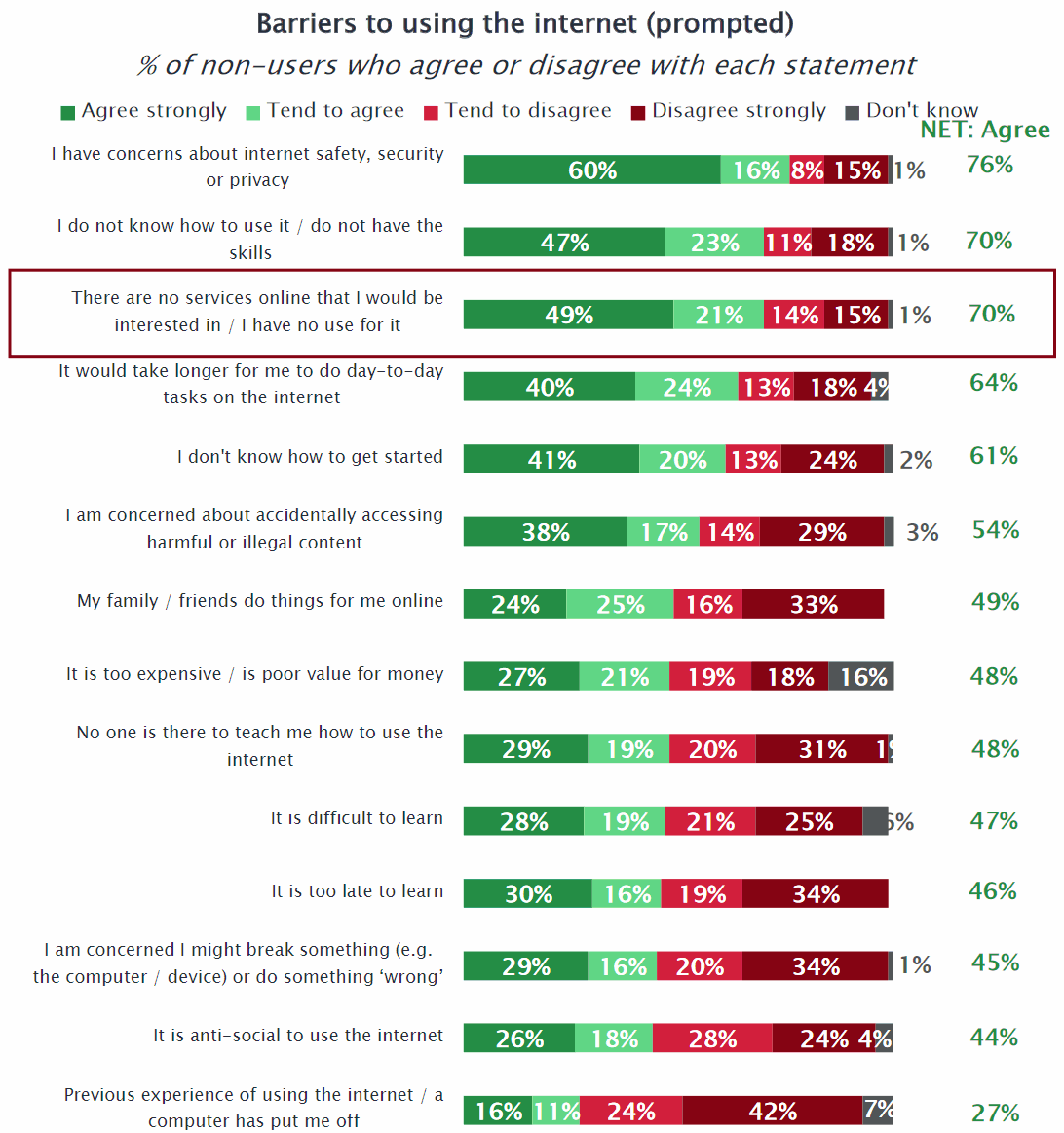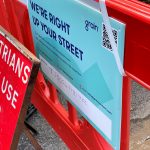BSG Examines Why 8.4% of UK People Have Never Used the Internet
A new piece of research from the Broadband Stakeholder Group, which is a think-tank that advises the Government, has revealed some of the reasons why 8.4% of the UK population have never used the internet (non-users). Sadly the majority of that group simply have no interest in going online.
The Government’s on-going drive to get everybody accessing services digitally (aka – Digital by Default) is known to have a number of problems, not least of which is the poor state of mobile and broadband ISP connectivity in some of the most poorly served areas (often remote rural communities). The other problem reflects how around 4 million or so adults have yet to go online by any method.
In response the BSG decided to examine this area in a little more detail, which they did by working with ComRes to conduct a combination of telephone interviews involving 11 people and a general survey of 992 adults (including 952 non-users and 40 “recently online” users). The results paint an interesting and complicated picture (full report).
Advertisement
Overall the study found that interest in the internet is low among non-users, with the clear majority (70%) of those surveyed saying that there are no services on the internet that they would be interested in. The results indicate that older survey respondents are more likely than those who are younger to agree with this statement (71% for 65+ vs. 58% for 45-64), as are women compared to men (73% women vs. 65% men).
In line with the above, only a small minority (12%) have expressed any interest in getting the internet installed and 93% of all respondents said they were “unlikely” to use the internet in the future. Looking specifically at non-users and their attitudes, some 51% were “proud” they didn’t use the internet and 46% felt that using it was “anti-social“.

The study also examined what barriers non-users identified as inhibiting their use of the internet, which found that at the top of the list some 76% were concerned for their online security / privacy, while 70% didn’t know how to use it and 70% agreed there are no services online that they would be interested in using.
Advertisement

If the motivation of shifting services online is no silver bullet for all of this group, then the BSG said “there is little encouragement to be found in the schemes aimed at boosting skills and providing a pathway to building confidence in using the internet.” Some 90% of those who had recently moved online had not heard of any such scheme. Additionally, it was clear that family members felt more comfortable having family and friends support them in learning how to use the internet with 85% trusting them to a great or some extent.
On top of that some 70% of those who had recently moved online said it was difficult to learn. By comparison the majority of non-users (69%) are not confident in being able to teach themselves how to use the internet, with half (48%) saying that they are very un-confident in their ability to do so.
BSG Statement
Given the difficulty in shifting those who do not use the internet online it is necessary to ask where we as society should draw the line. Digital government services – and indeed customer services in general – are cheaper, and through increased adoption of technology, can often be more efficient and easier to use than traditional channels.
Is it enough that everyone who want to go online are able to? For the population as a whole we are nearing this point – whilst not forgetting that 17% of disabled non-users said that there were physical barriers to going online, nor that there is a cohort of non-users who are interested in using at least some current internet services. Or should it be that everyone who is able to go online should be online?
These are important questions that are outside of the scope of this report, but it is worth considering the implication of the last view. Someone may be physically and mentally capable of being online, but if one of their only face to face interactions is at the Post Office or bank, then is it in society’s long-term interests to force them online for these services?
Personally speaking we don’t think that anybody should ever be forced to use the internet if they don’t want to, although there’s no escaping the fact that over the past decade a lot of systems and services have become increasingly online-only in their focus or availability.
Advertisement
However at a certain point being offline does clearly begin to disadvantage people, such as in terms of banking (good savings rates) and shopping around for different utility providers (more savings and easier to do online) or general products.
Meanwhile the somewhat morbid perspective that others may adopt is to say the problem will eventually solve itself because many of those who show no interest in going online today will ultimately depart this world, although even that will still leave a small group who struggle to get online for other reasons (e.g. disability, homeless with no money etc.).
Mark is a professional technology writer, IT consultant and computer engineer from Dorset (England), he also founded ISPreview in 1999 and enjoys analysing the latest telecoms and broadband developments. Find me on X (Twitter), Mastodon, Facebook, BlueSky, Threads.net and Linkedin.
« Ofcom Fine UK ISPs Virgin Media £25K and MS3 £2K for Late Info
London Wireless Broadband ISP Relish Rebrands to Three UK »

















































Comments are closed